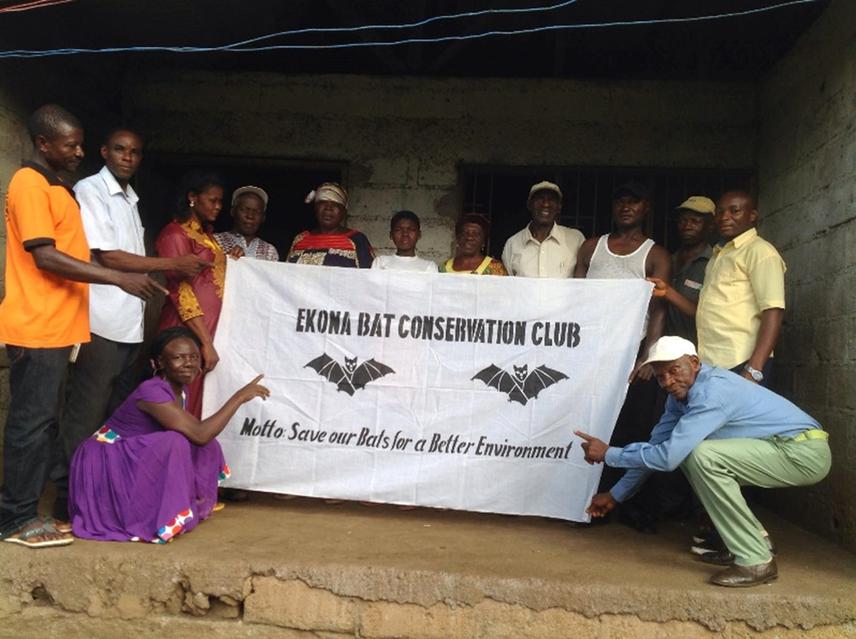Noumbissi Tenku
Other projects
22 Dec 2015
Safeguarding Bat Habitat in Ekona: Increasing Forest Size and Decreasing Forest Demand through Sustainable Cocoa Farming
Project seeks to engage farmers in securing key habitats in Ekona-Lelu montane forest to create a bat sanctuary with Protected Area Status. It’ll be the first of its kind in Cameroon and key deliverables will include: a) Physical demarcations, b) Re-establishment of destroyed habitats by planting trees for bat food/shelter, c) Curb forest/land degradation by training on climate-smart agriculture practices that secure better yield per hectare, d) Halt firewood sale by training on bee farming as alternative source of income, e) and Reduce reliance on firewood by training on production of pellets as alternative source of cooking fuel.

This project seeks to establish the first bat sanctuary in Cameroon around the Ekon-Lelu montane forest area in the South West Region. This will be achieved by attaining three milestones as follows:
A. Secure existing habitat
Securing existing habitats will entail identifying, qualifying, prioritising and safeguarding 5 key biodiversity areas in Ekona-Lelu as bat sanctuaries to ensure longterm survival of bat species. A task force drawn from the Ekona Bat Conservation Club will support in documenting potential sanctuary information such as geographic coordinates, dimensions, physical features, existential threats, known bat species and physical boundaries to be implemented. The report developed at the end of this activity would be presented to the Regional Delegate for Forestry and Wildlife Protection so that an official government order is passed to declare the identified areas as protected.
B. Preventing future habitat loss
Preventing future habitat loss would build on the key messages of sensitisation campaigns from our first project on how individual and collective behaviour affects bat ecology, as well as mitigation actions that must be taken. The next step would be to train farmers on two livelihood activities whose implementation would lead to reduction in deforestation – bee farming and pellets production.
A task force from the Bat Conservation Club and 10 specialist volunteers would train 300 farmers in bee farming. This would strengthen the capacity and resilience of famers to explore an alternative source of income that would reduce reliance on earning money from selling firewood. Another group of specialist volunteers would train the next set of 300 farmers to produce cooking pellets from the post-harvest residue of corn plants.
A third activity would involve training 600 farmers on climate-smart agricultural practices to improve crop yield per hectare of land without the need to cut down trees for land expansion. This would be in the form of building capacity for soil management to enhance moisture and improve nutrients retention.
C. Restoring disturbed or compromised habitat
The restoration of disturbed or compromised habitat will be carried out through educational campaign to highlight the importance of habitat restoration and viable bat ecologies. This will be reinforced by three major actions on key biodiversity areas:
i. Develop farmers’ capacity to implement bat-friendly farming practices by creating forest buffers on the fringes of farmlands alongside crops.
ii. Planting of trees in the key biodiversity areas identified above by famers, volunteers and members of the community.